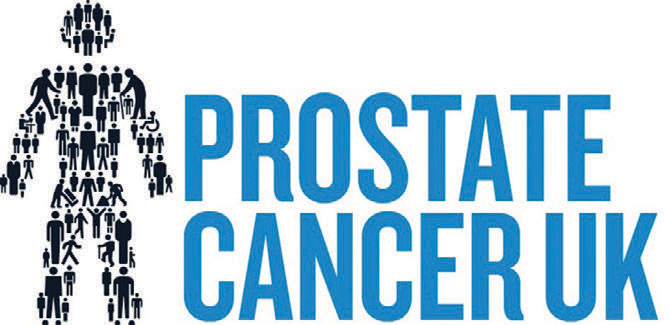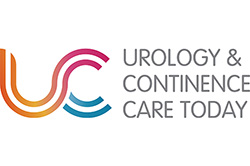
Eighty percent of men diagnosed with prostate cancer will end up with erectile dysfunction after treatment (Downing et al, 2019). Yet, talking about sex, treating erectile dysfunction, and meeting the man’s needs after treatment is often lower down on the healthcare professional’s agenda. Prostate Cancer UK found that sex and erectile dysfunction is the biggest unmet need for men with prostate cancer.
Why is that? Is it because we just want to focus on managing the prostate cancer? Are the urinary problems easier to prepare a patient for and treat? Do we find it difficult to talk about sex? Do we make assumptions that because a man is over a certain age, he won’t be having sex, so we don’t need to talk about it? Do we feel that if we ask how the erections are, we might be opening a can of worms and we just don’t have time in clinic? Do we have our own hang ups about sex, prejudices or cultural beliefs that stop us being able to talk openly about sex?
However, sex is part of everyday life, sex is what brought us all into the world. It is what men could have done for pleasure, for love, to relieve stress, for fun, to mend arguments, boost their mood or give them their sense of self. But, what about the men who aren’t sexually active with a partner? Masturbating regularly might be part of their ‘normal’. Often, we can miss the point that men might not even be that worried about the sex, it can be about the loss of the erection itself. Not waking up with it in the morning, not feeling it twitch when they see their wife/partner, or a pretty woman or hot man walk by. Losing the thing they felt made them a man. They often will go through a grief cycle with this loss.
But they feel they shouldn’t be feeling this way, they shouldn’t be worried about losing their erection. They had or have cancer, maybe they are lucky and it’s been cured or they’re having treatment so know that this was the penalty for living.
However, sex is part of everyday life, sex is what brought us all into the world. It is what men could have done for pleasure, for love, to relieve stress, for fun, to mend arguments, boost their mood or give them their sense of self. But, what about the men who aren’t sexually active with a partner? Masturbating regularly might be part of their ‘normal’. Often, we can miss the point that men might not even be that worried about the sex, it can be about the loss of the erection itself. Not waking up with it in the morning, not feeling it twitch when they see their wife/partner, or a pretty woman or hot man walk by. Losing the thing they felt made them a man. They often will go through a grief cycle with this loss.
But they feel they shouldn’t be feeling this way, they shouldn’t be worried about losing their erection. They had or have cancer, maybe they are lucky and it’s been cured or they’re having treatment so know that this was the penalty for living.
But these feelings of loss should be normalised, not ignored. We, as clinicians, might not be able to fix it all, and men might not want fixing. It might not stop them feeling sad about their loss. But to acknowledge it, to let them know you see them, offers the opportunity to open discussion and maybe point them in a direction
that could benefit them. It may be that is some treatment or counselling. Or it could just be enough that someone listened that day — that someone normalised their feelings and heard them, allowing them to move on through the cycle of grief.
Research carried out in 2018 by Prostate Cancer UK found that conversations about erectile function, treatments, how to deal with the loss and normalising the feelings of loss were not always happening in clinics. It was also found that unless clinicians asked questions about a man’s sexual function, it was unlikely that a man would bring it into the conversation, leaving it as an unspoken, unmet need.
that could benefit them. It may be that is some treatment or counselling. Or it could just be enough that someone listened that day — that someone normalised their feelings and heard them, allowing them to move on through the cycle of grief.
Research carried out in 2018 by Prostate Cancer UK found that conversations about erectile function, treatments, how to deal with the loss and normalising the feelings of loss were not always happening in clinics. It was also found that unless clinicians asked questions about a man’s sexual function, it was unlikely that a man would bring it into the conversation, leaving it as an unspoken, unmet need.
We also know anecdotally, through what our service users tell us, that services for erectile dysfunction (ED) clinics around the country are patchy. Some people have excellent services with great penile rehabilitation programmes for prostatectomy patients, others don’t even have access to an ED clinic. Also, men who were cared for in oncology having radiotherapy or hormone therapy, often had less access to ED clinics.
Therefore, Prostate Cancer UK set up the sexual support service to provide a safe space on the phone for people to talk openly and honestly to a specialist nurse in sexual health, about how it is for them. They can share what treatments they are on, what is working, what is not, how they are feeling and how it is affecting their relationship. It is a service that is there for men to have their space on the phone for as long as they need to talk about their sexual problems after prostate cancer treatment.
The service is open to anyone who has been affected by prostate cancer treatment, partners too. We want to empower and provide information and support to men and their partners who are suffering with erectile dysfunction after prostate cancer treatment to help them get the right treatments, both physically to get erections back (if they wish), and emotionally too.
Therefore, Prostate Cancer UK set up the sexual support service to provide a safe space on the phone for people to talk openly and honestly to a specialist nurse in sexual health, about how it is for them. They can share what treatments they are on, what is working, what is not, how they are feeling and how it is affecting their relationship. It is a service that is there for men to have their space on the phone for as long as they need to talk about their sexual problems after prostate cancer treatment.
The service is open to anyone who has been affected by prostate cancer treatment, partners too. We want to empower and provide information and support to men and their partners who are suffering with erectile dysfunction after prostate cancer treatment to help them get the right treatments, both physically to get erections back (if they wish), and emotionally too.
To find out more…
Patients who may benefit from talking to one of our Sexual Support Service nurses, can call 0800 074 8383, or fill in the online form: https://prostatecanceruk.org/form-pages/sexual-support-service
Patients who may benefit from talking to one of our Sexual Support Service nurses, can call 0800 074 8383, or fill in the online form: https://prostatecanceruk.org/form-pages/sexual-support-service
References
Downing A, Wright P, Hounsome L, et al (2019) Quality of life in men living with advanced and localised prostate cancer in the UK: a population-based study. Lancet Oncol 20: 436–47
This piece was first published in the Journal of General Practice Nursing. To cite this article use: Smith S (2022) Let’s talk about sex. J Gen Pract Nurs 7(4): 14


